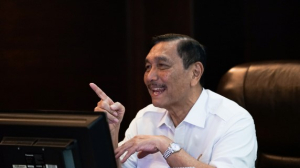PTBA remains optimistic about coal business amid global challenges
Coal mining compnay PT Bukit Asam (PTBA) has maintained its optimism about the future of its coal business, despite the growing restrictions on coal consumption by several developed countries, including China.
Setiadi, Senior Vice President of the Project Management Office at PTBA, indicated that the company sees significant potential in emerging markets, particularly in Southeast Asia and South Asia. He cited countries like India, Bangladesh, and Pakistan as attractive markets due to their high demand for coal.
"Countries like India, Bangladesh, and Pakistan are becoming increasingly attractive markets, as the demand remains quite strong," Setiadi told the 2024 Public Expose, held virtually on Tuesday, August 27, 2024.
Beyond international prospects, PTBA is also focusing on domestic projects to secure its coal usage in Indonesia.
"In terms of energy and downstream processing, we are developing projects that will secure Bukit Asam's coal usage domestically for the long term," Setiadi added.
He further discussed the potential demand for coal in the coming years, emphasizing that there is still a considerable demand for coal, especially from developing countries.
"Countries in Southeast Asia and South Asia − particularly India, Pakistan, and Bangladesh − are attractive export markets because coal demand remains high in these areas," he said.
In the medium term, Setiadi remains hopeful about the demand for coal, both domestically and internationally, particularly in markets that are still open to the coal industry.
"For the long term, we aim to secure demand both domestically and in regions that are relatively still receptive to the coal industry, such as the developing countries I mentioned earlier," he said.
Despite PTBA’s optimism, global coal demand is predicted to remain stable or even decline, primarily due to the rapid growth of renewable energy sources like wind and solar power.
According to a recent report from the International Energy Agency (IEA), global coal consumption for power generation increased by 2.6 percent in 2023, reaching an all-time high driven by the two largest coal consumers, China and India.
However, this increase was largely due to low hydroelectric power output amidst high electricity demand growth.
"Our analysis shows that global coal demand is likely to remain stable through 2025, based on current policy settings and market trends," Keisuke Sadamori, IEA’s Director of Energy Markets and Security, said as quoted by Reuters on July 24, 2024.
He added that continued expansion of solar and wind power, combined with a recovery in hydroelectric output in China, is exerting significant pressure on coal usage.
The IEA report also forecasts that coal demand growth in India will slow in the second half of 2024 due to seasonal weather conditions returning to normal and improvements in hydroelectric power generation.
Meanwhile, coal-fired power generation in the European Union is expected to decrease by nearly the same amount in 2024 as it did in 2023, when it fell by more than 25 percent.
In the United States, coal usage has significantly declined in recent years. However, stronger electricity demand and less switching from coal to natural gas could slow this trend in 2024.
Tag
Already have an account? Sign In
-
Start reading
Freemium
-
Monthly Subscription
20% OFF$29.75
$37.19/MonthCancel anytime
This offer is open to all new subscribers!
Subscribe now -
Yearly Subscription
33% OFF$228.13
$340.5/YearCancel anytime
This offer is open to all new subscribers!
Subscribe now







